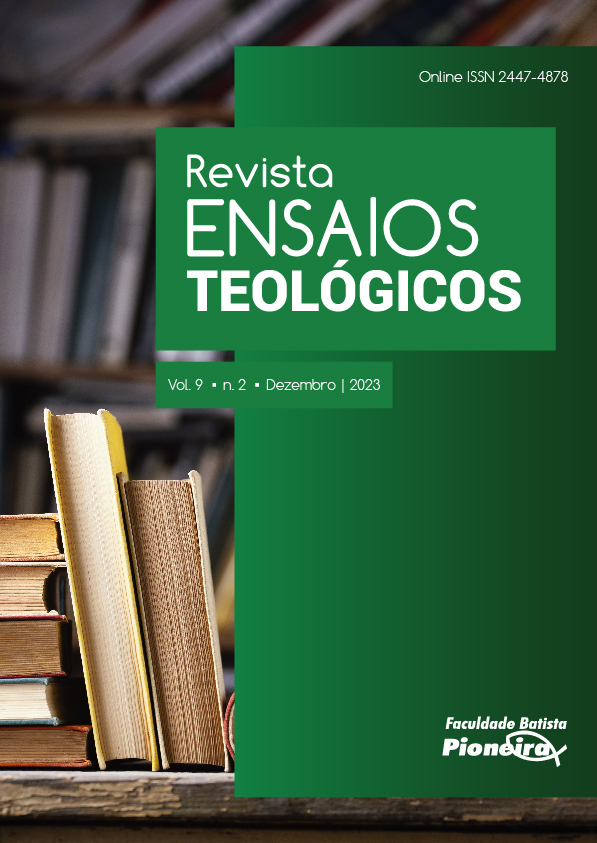A LINGUAGEM ANTROPOMÓRFICA NO ANTIGO TESTAMENTO E O “ARREPENDIMENTO” DE DEUS EM ÊXODO 32.14
Resumo
O presente trabalho se propõe a demonstrar que Deus é imutável em seus desígnios e na maneira como lida com sua criação, da qual se utiliza para cumprir seus insondáveis propósitos, revelando-se nas Escrituras através de uma linguagem antropomórfica que embora sugira uma mudança de direção ou “arrependimento”, na verdade, expressa seu caráter misericordioso e compassivo sem alteração de sua substância. Nessa toada, também procura demonstrar que a objeção do teísmo aberto à imutabilidade do ser de Deus deita raízes no liberalismo teológico, cujos pressupostos excluem a inerrância e inspiração das Escrituras, bem como seu caráter autoritativo, no que resulta em frágil argumentação, que exalta a perspectiva humana em detrimento da natureza e do caráter do Criador. Dentre as passagens veterotestamentárias referentes ao tema, analisa-se o texto de Êxodo 32.14. A metodologia utilizada é a da pesquisa bibliográfica, com observância dos métodos indutivo e dedutivo. As proposições decorrentes do tema da imutabilidade de Deus, do ponto de vista teológico, são estabelecidas, para empós apresentar-se resultados da pesquisa.
Palavras-chaves: Imutabilidade de Deus. Arrependimento. Linguagem antropomórfica.
Anthropomorphic language in the Old Testament and god's “repentance” in Exodus 32:14
Abstract: The present work aims to demonstrate that God is immutable in his designs and in the way he deals with his creation, which he uses to fulfill his unfathomable purposes, revealing himself in the Scriptures through an anthropomorphic language that although it suggests a change of direction or “repentance”, indeed, expresses its merciful and compassionate character without altering its substance. In this vein, it also seeks to demonstrate that the opposition of open theism against the immutability of God's being is rooted in theological liberalism, whose assumptions exclude the inerrancy and inspiration of Scripture, as well as its authoritative character. It results in a weak argument that exalts the human perspective to the detriment of the nature and character of the Creator. Among the Old Testament texts referring to the theme, it analyzes the text of Exodus 32.14. The methodology used is bibliographic research, with observance of the inductive and deductive methods. The propositions arising from the theme of the immutability of God, from the theological point of view, are established. Afterward, the results of the research that is presented.
Keywords: Immutability of God. Repentence. Anthropomorphic Language.
Downloads
Publicado
Edição
Seção
Licença
Copyright (c) 2025 Werbston da Silva Coelho

Este trabalho está licenciado sob uma licença Creative Commons Attribution-NonCommercial-NoDerivatives 4.0 International License.

